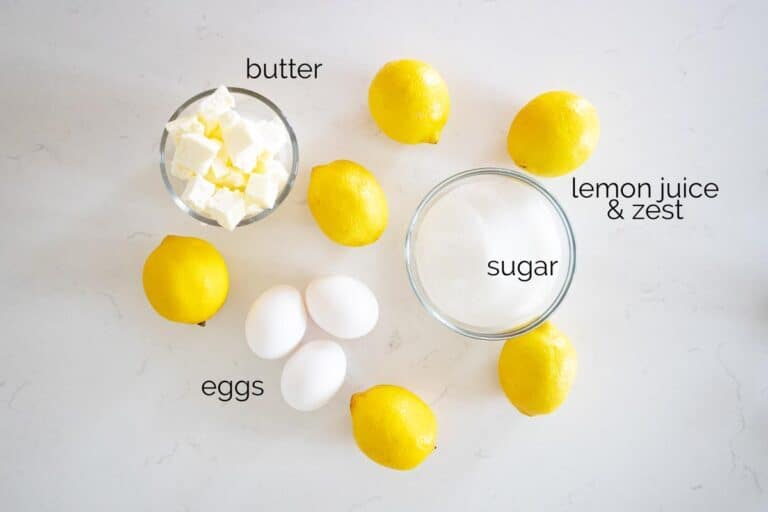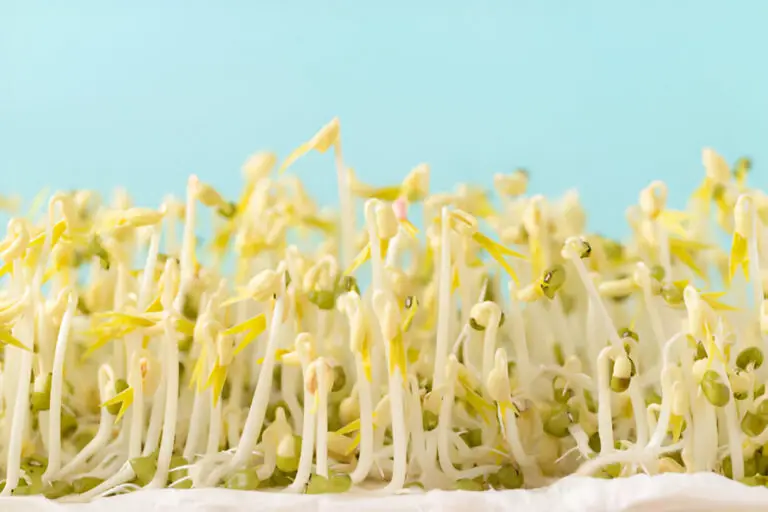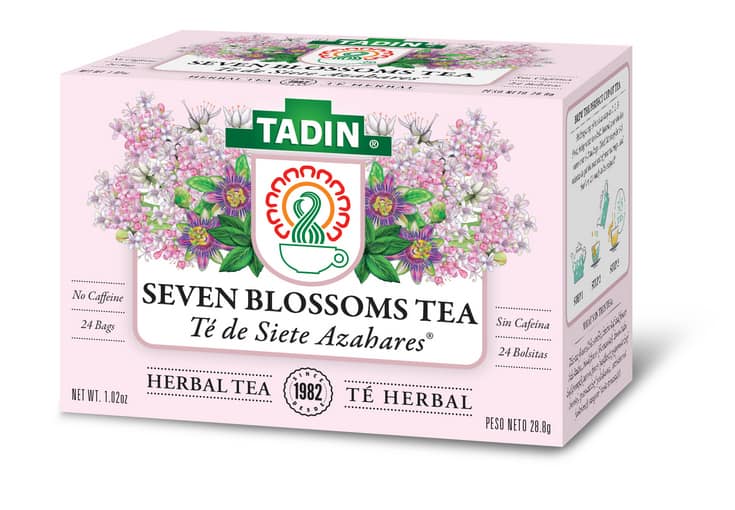Does Lemon Curd Have Dairy and Contain Gluten?

Lemon curd is a delicious, tart spread made from lemons, sugar, and eggs. It is often used as a filling for cakes and pastries, or simply enjoyed on its own.
The main question people have about lemon curd is: Does lemon curd have dairy? Does lemon curd contain gluten?
The answer to this question is yes and no. Traditional lemon curd does not have dairy. This is because the traditional recipe for lemon curd only calls for eggs, lemons, sugar, and butter.
Does Lemon Curd Have Dairy?
Some modern versions of lemon curd may include butter or cream, while traditional lemon curd recipes do not call for dairy.
So, is there dairy in lemon curd? It depends on the recipe. If a recipe calls for butter or cream, then there will be dairy in the lemon curd. However, if the recipe only calls for lemons, sugar, and eggs, then it is a dairy-free lemon curd.
You may replace normal butter with vegan butter or coconut oil, and milk with coconut milk. These ingredients are not only dairy free; they still create a delicious and creamy curd that ‘s perfect for those with dairy allergies or sensitivities.
This recipe was tasty with coconut oil instead of butter.
Why Put Butter into Lemon Curd?
While some homemade lemon curd recipes do not call for butter, many do – so why put butter into lemon curd?
There are a few reasons why butter is often used in lemon curd recipes. First, the fat in the butter helps to balance out the tartness of the lemon juice. This results in a smoother, more palatable flavor.
Secondly, the butter adds richness and body to the lemon curd. This makes it more spreadable and gives it a lovely texture.
Finally, the addition of butter makes lemon curd more versatile. For example, it can be used as a filling for cakes or pastries – something that would not be possible with a non-butter based recipe.
TIPS 
If you don’t need a dairy free lemon curd, then make it with butter instead of margarine.
Does Lemon Curd Contain Gluten?
Wheat, rye, and barley all contain the protein known as gluten. It is in charge of giving dough its elastic texture. People with celiac disease must avoid gluten because it can damage the lining of their intestines.
Some people are concerned about whether lemon curd contains gluten.
Traditional lemon curd recipes do not use cornstarch to thicken the curd; instead, they rely on eggs to create a naturally thick texture.
You can make your own gluten-free lemon curd at home or buy it at the store. There are also many recipes that substitute other ingredients for wheat flour so that you can enjoy your favorite foods without worrying about getting sick.
How Much Fat is in Lemon Curd?
Lemon curd is made from eggs, butter, and sugar, and these ingredients give the spread its high fat content. In addition, the type of butter and eggs used in a recipe can impact the spread’s fat content. There is no standard amount of fat in lemon curd, so keep this information in mind when comparing brands.
On average, one tablespoon of homemade lemon curd contains about 9 grams of fat, which is more than double the amount of fat in an equivalent serving of peanut butter.
Despite its high fat content, lemon curd can be part of a healthy diet. The egg yolks in lemon curd are a good source of choline, which is important for brain health. Lemon curd also contains antioxidants that can help protect against disease.
The fat contains monounsaturated and polyunsaturated fats, which have been shown to be good for the heart. Other health benefits include reducing the risk of cancer, protecting against stroke and other brain diseases, helping to lower cholesterol levels and improving your overall bone health.
How Much Protein in Lemon Curd ?
While it is high in sugar and fat, lemon curd also contains a fair amount of protein. One tablespoon of lemon curd has about 2 grams of protein.
However, most of the protein in lemon curd comes from the egg whites, so if you’re looking for a vegan option, you may want to look elsewhere.
For those on a high-protein diet, lemon curd can be a great way to get an extra boost of protein. It can be added to oatmeal or yogurt, spread on toast, or even used as a filling for cakes or cupcakes.
| Just be sure to watch your portion size, as too much lemon curd can quickly add up in calories and fat. |
How to Make Vegan Lemon Curd
If you’re vegan, you may think that you have to miss out on this tasty treat. However, it’s easy to make your own vegan lemon curd at home with just a few simple ingredients.
This delicious, vegan lemon curd recipe below is made with just 6 simple ingredients: lemon juice, sugar, non dairy milk, vegan butter, cornstarch, and salt. It’s quick and easy to make, too—just 10 minutes from start to finish!
Here’s how to make vegan lemon curd:
Ingredients:
- 1 cup non-dairy milk (I used almond)
- 1/2 cup sugar
- 1/3 cup fresh lemon juice and zest of 1 lemon
- 2 teaspoon vegan butter
- 3 tablespoons cornstarch
- 1/4 teaspoon salt
Instructions:
- Combine milk, sugar, lemon juice, and lemon zest in a medium saucepan over medium heat.
- Bring mixture to a simmer, stirring occasionally with whisk until sugar dissolves. Add butter.
- In a small bowl, combine cornstarch and salt. Add the flour to the lemon mixture and stir until thickened (about 5 minutes).
- Transfer to a bowl or jar and let cool before refrigerating.
- Lemon curd will keep in the refrigerator for up to 1 week.
Are Lemon Butter and Lemon Curd the Same Thing?
Lemon butter and lemon curd are two very different things. Lemon butter is a spread made from lemon juice, butter, and sugar. It is smooth and spreadable, like a thick jelly. Lemon curd is also made from lemon juice, sugar, and butter, but it also contains eggs. This makes it thicker and more like a pudding.
Lemon butter and lemon curd are two very popular citrus-based spreads. They are both delicious and versatile, but there are some key differences between the two.
Lemon butter is made by combining lemon juice and lemon zest with butter. It is smooth and creamy and has a rich, lemony flavor. The texture is light and smooth.
Lemon curd is made with lemon juice, eggs, and sugar. It is thick and tangy and has a bright, acidic flavor. The texture is thicker and richer.
So, which one should you choose? It really depends on what you’re looking for. If you want something sweet and rich, go for the lemon butter. If you want something tart and tangy, go for the lemon curd. Either way, you can’t go wrong!
How to Make Lemon Curd with Ideal Thickness
Lemon curd is a thick, creamy, and delicious spread or filling made from lemons, sugar, butter, and eggs. It’s tangy and sweet with a rich texture that makes it perfect for spreading on toast, using as a filling in cakes or tarts, or simply eating by the spoonful.
But how do you make lemon curd? And what is the perfect thickness for this versatile treat?
Lemon curd is made by combining lemon juice and zest with sugar, butter, and eggs. The mixture is then cooked over low heat until thickened. Some recipes call for additional ingredients such as cream or flour to help thicken the mixture, but this isn’t necessary.
The ideal thickness for lemon curd depends on how you plan to use it. I like to make a thicker batch so that I can use the lemon curd on scones or in my homemade lemon meringue pie. On the other hand, if you plan to use the lemon curd as an icing for a cake, then you will want it to be quite thin and runny.
If you want your lemon curd to thicken quickly, cook it over low heat and stir often. It should be thick within 15-20 minutes. If you are not in a hurry, you can cook it over medium heat, stirring occasionally. It should thicken in about 30-40 minutes.
Why Does Lemon Curd Go Bad?
Lemon curd is made with eggs, sugar, butter, and lemon juice. It can last in the fridge for up to 2 weeks, but after that it will start to go bad.
The reason lemon curd goes bad is because of the eggs. Eggs are a source of protein, and when they are cooked, the proteins start to break down. This process is accelerated by heat and acid, both of which are present in lemon curd. After a few weeks, the proteins will have broken down enough that the lemon curd will no longer be safe to eat.
Because lemon curd is creamy, it has a high fat content. This also attracts bacteria. Using a spoon that has been used in the kitchen for other purposes, or not washing your hands after using the bathroom can both spread bacteria from one food to another.
Therefore, it is best to consume the lemon curd within a few weeks of making it. This will allow you to enjoy the delicious flavor of this lemon curd while also ensuring that all the ingredients are still fresh and tasty.
Lemon Curd Shelf Life at Room Temperature
At room temperature, lemon curd will last for about 2 weeks. After that, it should be refrigerated. Lemon curd can also be frozen for up to 6 months.
To extend its shelf life, make sure to store lemon curd in an airtight container. If you notice the lemon curd starting to change color or texture, it has gone bad and should be discarded.
If you want your lemon curd to stay fresh longer, you can flavor it with a little bit of alcohol. The alcohol will help prevent bacteria from growing in the lemon curd, which will keep it fresh. You also might be wondering if you can freeze lemon curd. Yes!
Conclusion
In conclusion,it can be said that lemon curd does not have dairy and does not contain gluten. While some recipes may call for butter or cream, these can easily be replaced with vegan alternatives.
When making lemon curd, use butter rather than margarine if you don’t need it to be dairy free lemon curd.
Lemon curd is an excellent and adaptable spread that might be utilized in many methods. There are several recipes for dairy-free lemon curd, however occasionally you might choose to use butter rather than margarine.
If you don’t require dairy-free lemon curd, you may prepare it using butter to give it a fuller taste and texture. The results are worthwhile, and it’s simple to accomplish.
When it comes to gluten, there are a few ways to make sure your lemon curd is completely gluten free.






